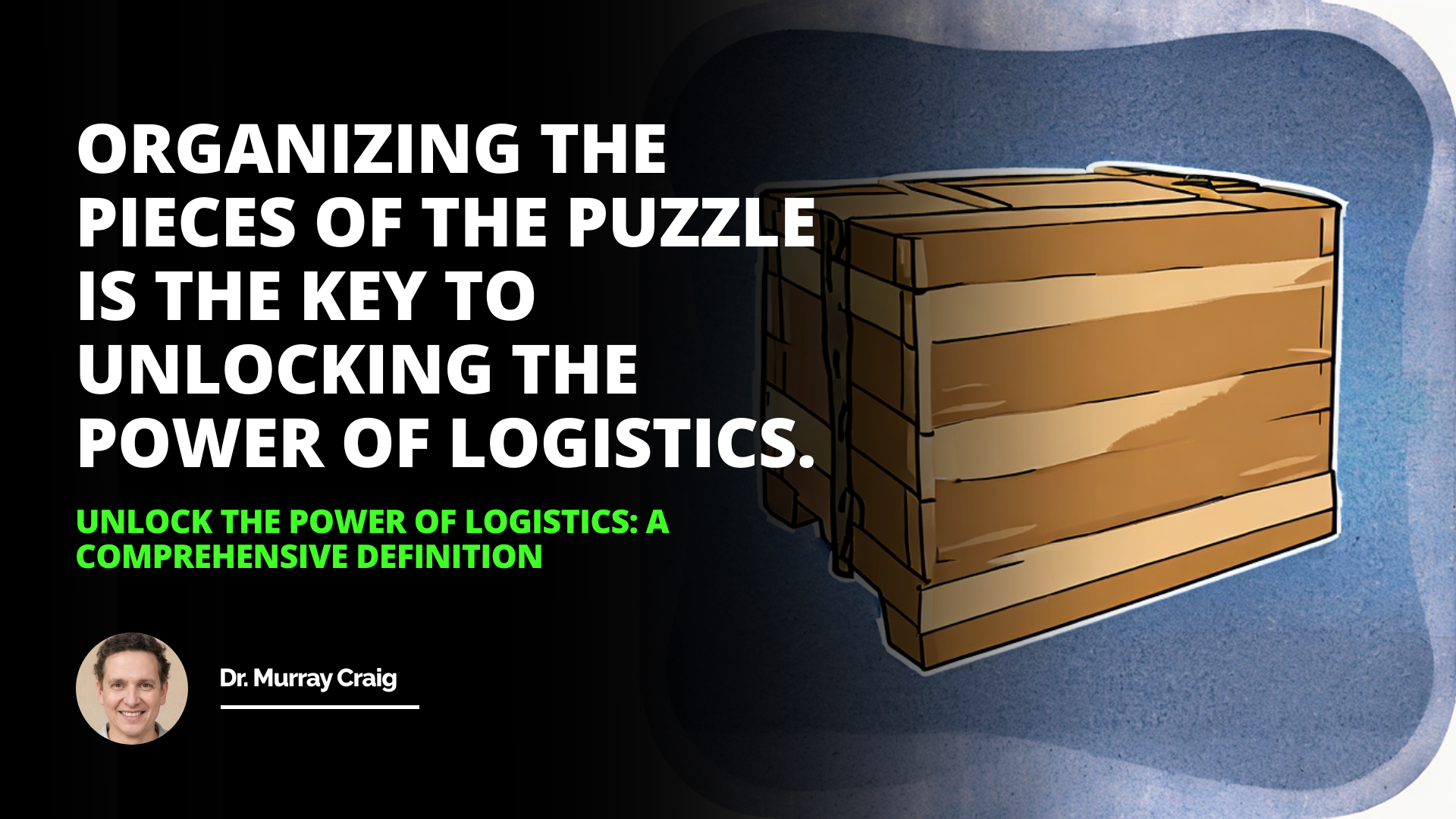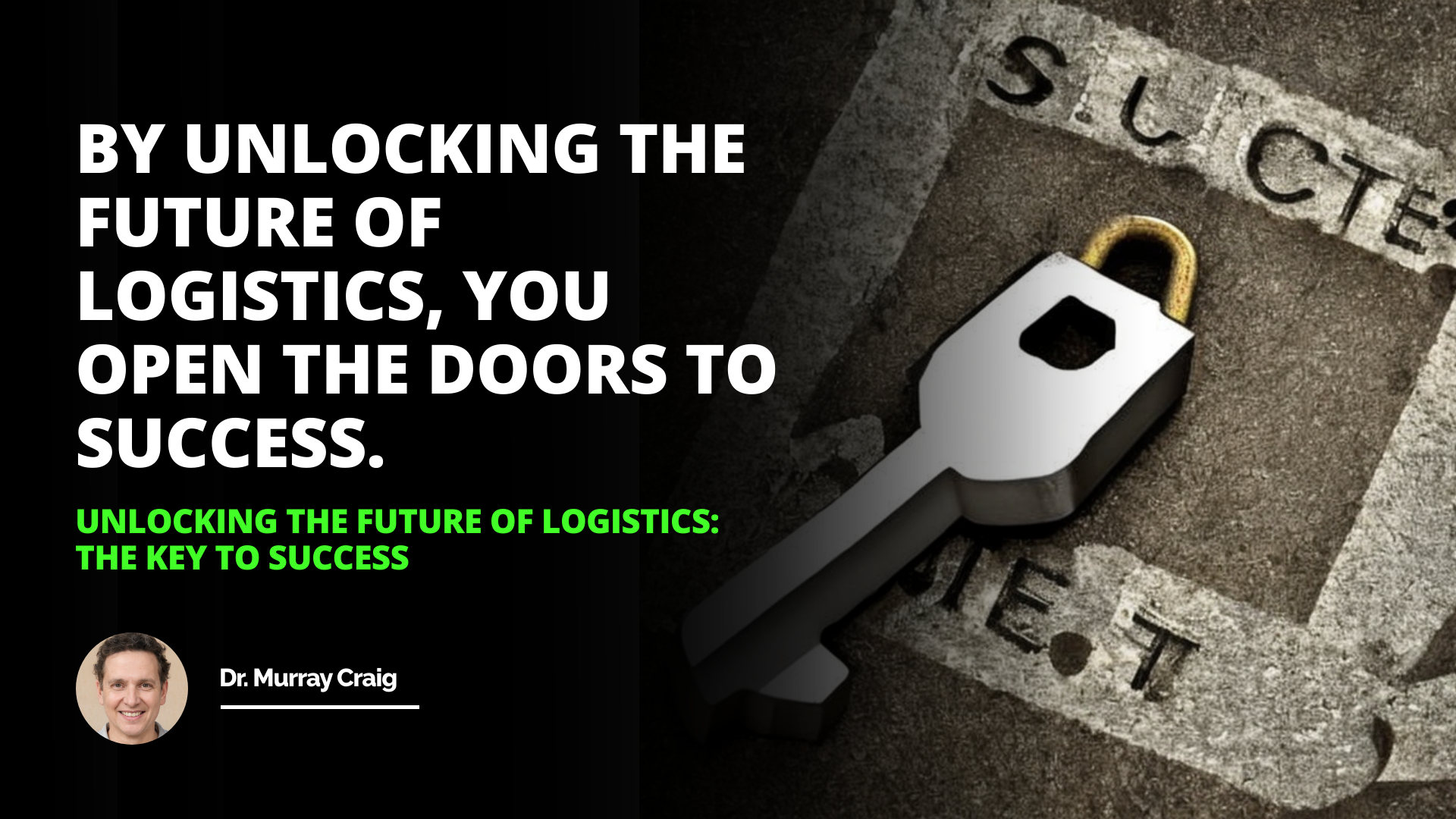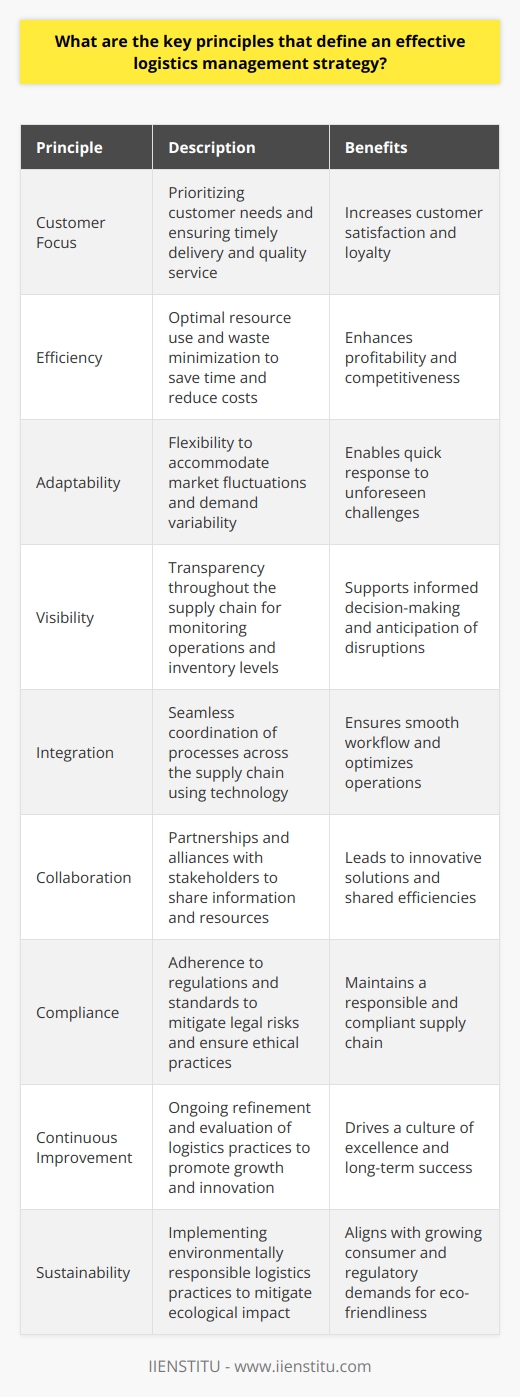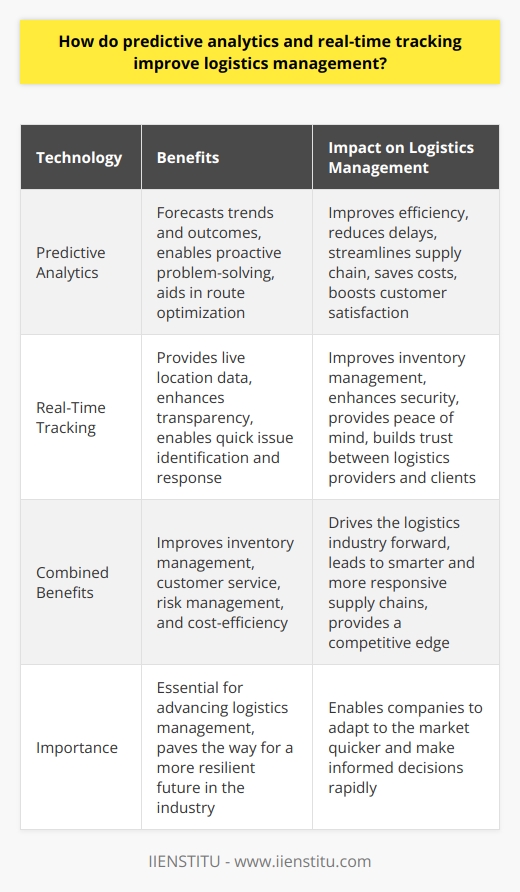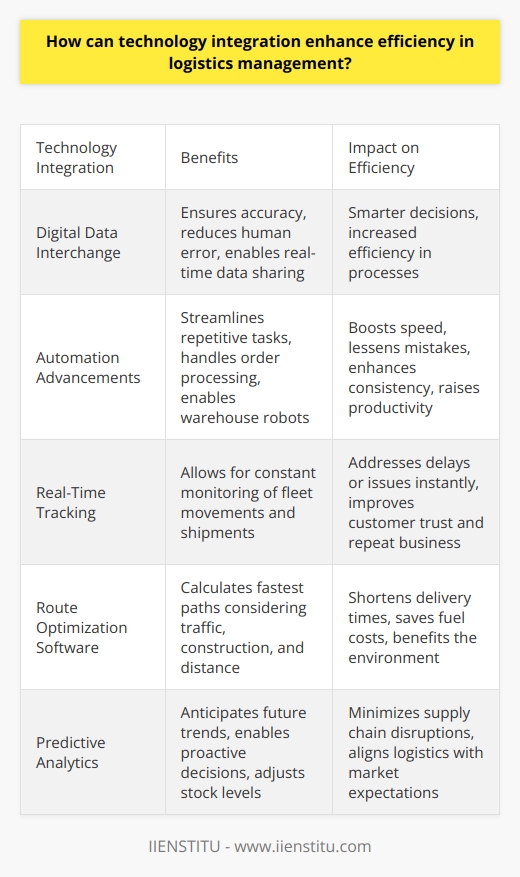Logistics management plays a pivotal role in the cohesive functioning of supply chains, dictating the efficient movement of goods and services from inception to consumption. As businesses globalize, the necessity for discerning logistics practices has become paramount—underscoring the need to balance transit times, cost-efficiency, and reliability. Within this framework, logistics management emerges as a critical organizational function. The integration of online logistics courses and certificate courses online offers professionals the opportunity to sharpen their skills and adapt to the ever-evolving logistics landscape.
Dr. John J. Coyle’s insights serve as guiding principles that illuminate the path to logistics excellence, rooted in strategic foresight and operational acuity. This article explores the various dimensions of logistics management, emphasizing strategies and principles essential for efficacy and the cultivation of competitive advantage.
Understanding Logistics Management
Historical Background of Logistics Management
The concept of logistics is far from contemporary; it has been integral to civilizations since ancient times, initially woven into the fabric of military strategy and commercial trade. The earliest logistics efforts were directed at ensuring that military campaigns had sufficient supplies and resources, a testament to its decisive role in the outcomes of battles and wars. Trade routes like the Silk Road exemplify the historical significance of logistics in commerce, prompting the development of innovative solutions to overcome geographical and logistical barriers.
Modern day Logistics Management
Confronted with the exponential complexity of global trade and commerce, today's logistics management has evolved to an advanced projection of its historical counterpart. Companies and professionals delve into the depth of certificate courses online to remain adept, as the industry itself is transforming under the influence of technological innovation. With e-commerce proliferation and the rise of omnichannel distribution systems, logistics has become an intricate grid of processes that must be meticulously orchestrated to achieve optimal performance.
The Role of Technology in Modern Logistics
Technological advancements have furnished logistics management with tools that promote precision, adaptability, and efficiency. Artificial Intelligence (AI), the Internet of Things (IoT), and blockchain technology are revolutionizing traditional methods by fostering transparent, responsive, and secure logistic operations. These advancements have not only enhanced tracking and management capabilities but also streamlined communications across the supply chain, aligning with the immediacy expected in today’s fast-paced markets.
Essentials of Logistics Management
Analyzing the Implications and Benefits of Asset Tracking in Business Operations
Unlocking Benefits from CPFR: A Collaborative Planning Journey
Key Elements in Logistics Management
Fundamentally, logistics management encapsulates inventory management, transportation management, logistics communication, warehousing, and materials handling. Mastery over these elements is what distinguishes competent logistics management from the lackluster. Online logistics courses often provide comprehensive insights into these areas, offering simulations and real-world case studies that sharpen decision-making skills and strategic thinking.
Functions of Logistics Management
The intricate dance of logistics functions incorporates order processing, inventory control, warehousing, and transportation and tracking. Each function is a gear in the larger mechanism of supply chain management, precision-engineered to synchronize with the dynamic demands of the market. Successful utilization of these functions not only advances operational efficiency but also serves as a benchmark for industry standards.
Integrating Logistics Functions with Business Strategy
Beyond possession of the technical knowledge imparted by certificate courses online, proficient logistics managers understand the necessity to embed logistics functions within broader business strategies. For instance, they must align warehousing practices with inventory turnover rates and customer demands, ensuring that stock levels are optimized to meet service-level agreements without incurring excess costs or obsolescence.
The Importance of Good Logistics Management
Enhancing Business Performance
An efficacious logistics management strategy directly influences a business' performance. It is the engine that propels product availability, which in turn affects sales volumes and customer loyalty. Companies renowned for their logistical prowess, such as Amazon, demonstrate the monumental impact that sophisticated logistics systems can have on market dominance and the achievement of economies of scale.
Customer Satisfaction
As markets become increasingly customer-driven, logistics is a key battleground for customer satisfaction and retention. A well-managed logistics system not only ensures timely delivery but also heightens the customer's experience with the brand. Effective logistics takes into consideration the multifaceted concept of value beyond just cost—to encompass aspects such as product variety, after-sales service, and return policies.
Benchmarking Success Through Logistics
Businesses that prioritize logistics often see a positive correlation in customer satisfaction metrics and profitability. Apple is an exemplar of success, having constructed a high-velocity supply chain that balances inventory management with on-demand production. This delicate balancing act is a testament to the profound influence logistics has on operational success and the end-user experience.
Emerging Trends in Logistics Management
Technology in Logistics Management
In the frontier of logistics management, emerging technologies like AI, Blockchain, and IoT are the harbingers of transformative change. These innovations afford logistics providers the ability to track shipments in real-time, predict demand patterns, and automate routine operations. Companies like Maersk have invested in blockchain to facilitate secure and transparent shipping transactions, exemplifying the strategic integration of technology in logistics.
Green Logistics
The concept of green logistics has burgeoned in response to escalating environmental concerns and regulatory pressures. Sustainable logistics practices are not only ethically sound but can also confer financial and reputational benefits. The push towards eco-friendly packaging, renewable energy sources, and waste reduction practices demonstrates the industry’s commitment to sustainable development.
The Need for Sustainable Practices
Organizations employing sustainable logistics differentiate themselves in an increasingly values-focused marketplace. Consumer awareness and governmental legislations are prompting logistics managers to consider carbon footprints, resource efficiency, and overall environmental impact within their operations. Consequently, sustainability is becoming a cornerstone in logistics strategy formulation.
Challenges in Logistics Management
Identifying and Overcoming Challenges
Despite the technological advancements and strategic insights, logistics management faces an array of challenges, including but not limited to inventory inaccuracies, transportation bottlenecks, and regulatory compliance. Businesses must adopt a proactive stance in identifying challenges early and apply inventive strategies to mitigate their impact, thereby ensuring seamless logistics operations.
Strategies for Optimization and Improvement
To navigate the complex realm of logistics, strategists must leverage analytics, agile methodologies, and continuous improvement practices. Adapting to an ever-changing environment mandates a mindset of perpetual evolution, underpinned by robust processes that can respond dynamically to external pressures such as market volatility and disruptive technologies.
Preparing for the Future of Logistics
As logistics management continues to mature, businesses must prepare to embrace futuristic concepts, potentially involving autonomous vehicles, drone deliveries, and seamless intermodal transportation systems. Preparing for this imminent shift entails not only infrastructure readiness but also cultivating a workforce that is skilled in the latest logistics paradigms, underscoring the value of online logistics courses and continuous professional development.
Conclusion
In conclusion, the corpus of logistics management is characterized by a relentless pursuit of efficiency, innovation, and responsiveness to customer needs. Far from being a static discipline, it is a fluid and dynamic field requiring ongoing investment in knowledge and skills—highlighted by the growing importance of certificate courses online. As we consider the future landscape of logistics, it is evident that the fusion of technology, strategy, and sustainability will dictate the trajectory of successful logistics management. Businesses that can adeptly navigate this intricate confluence will be poised to excel in the competitive global marketplace. In this vein, forward-thinking logistics managers will continue to shape the pulse of commerce, weaving agility and foresight into the fabric of supply chain excellence.
References
- "Supply Chain Management: Strategy, Planning, and Operation" by Sunil Chopra & Peter Meindl
- "Logistics and Supply Chain Management" by Martin Christopher
- "Sustainable Logistics and Supply Chain Management: Principles and Practices for Sustainable Operations and Management" by David B. Grant, Alexander Trautrims, Chee Yew Wong



